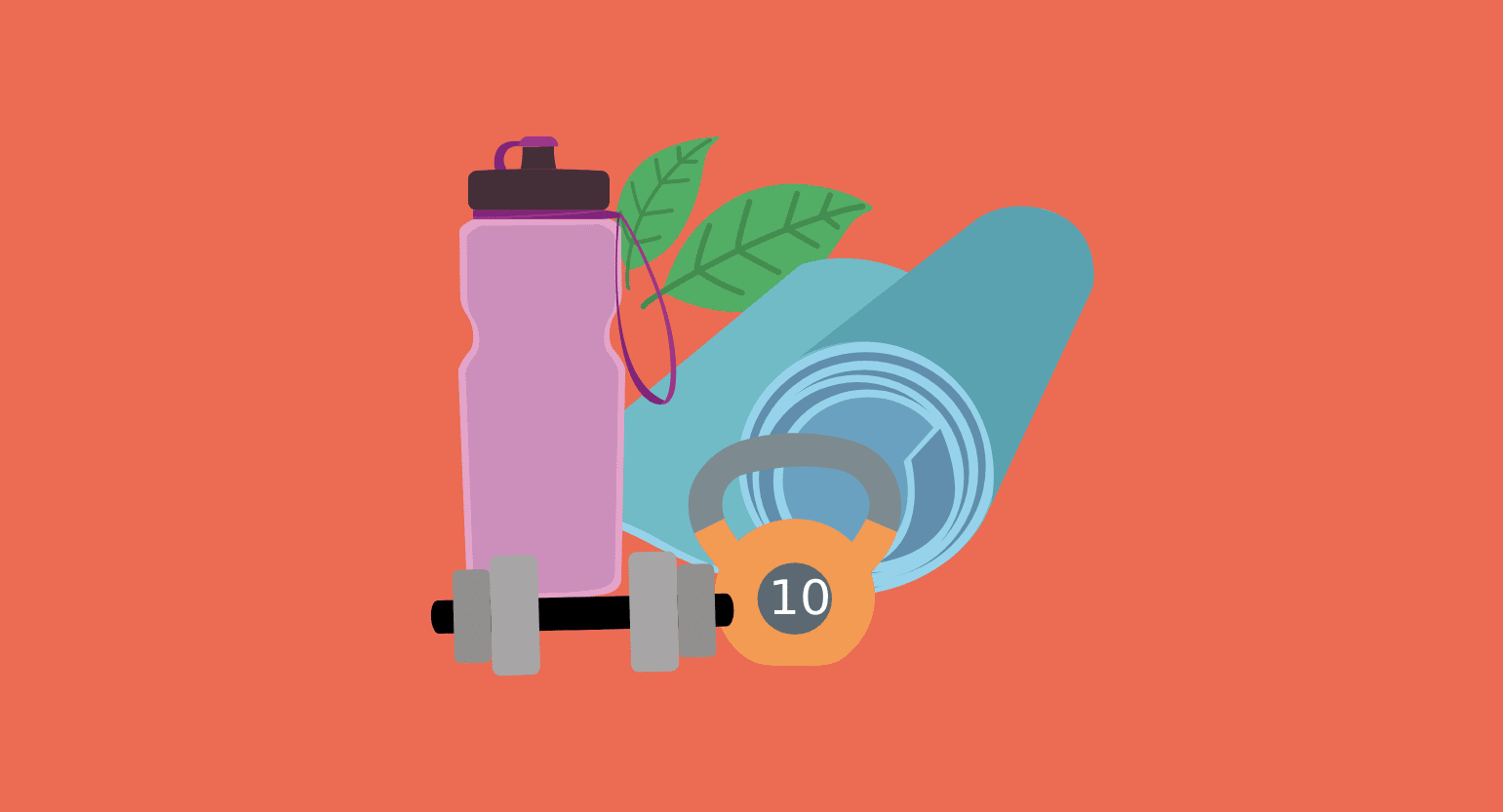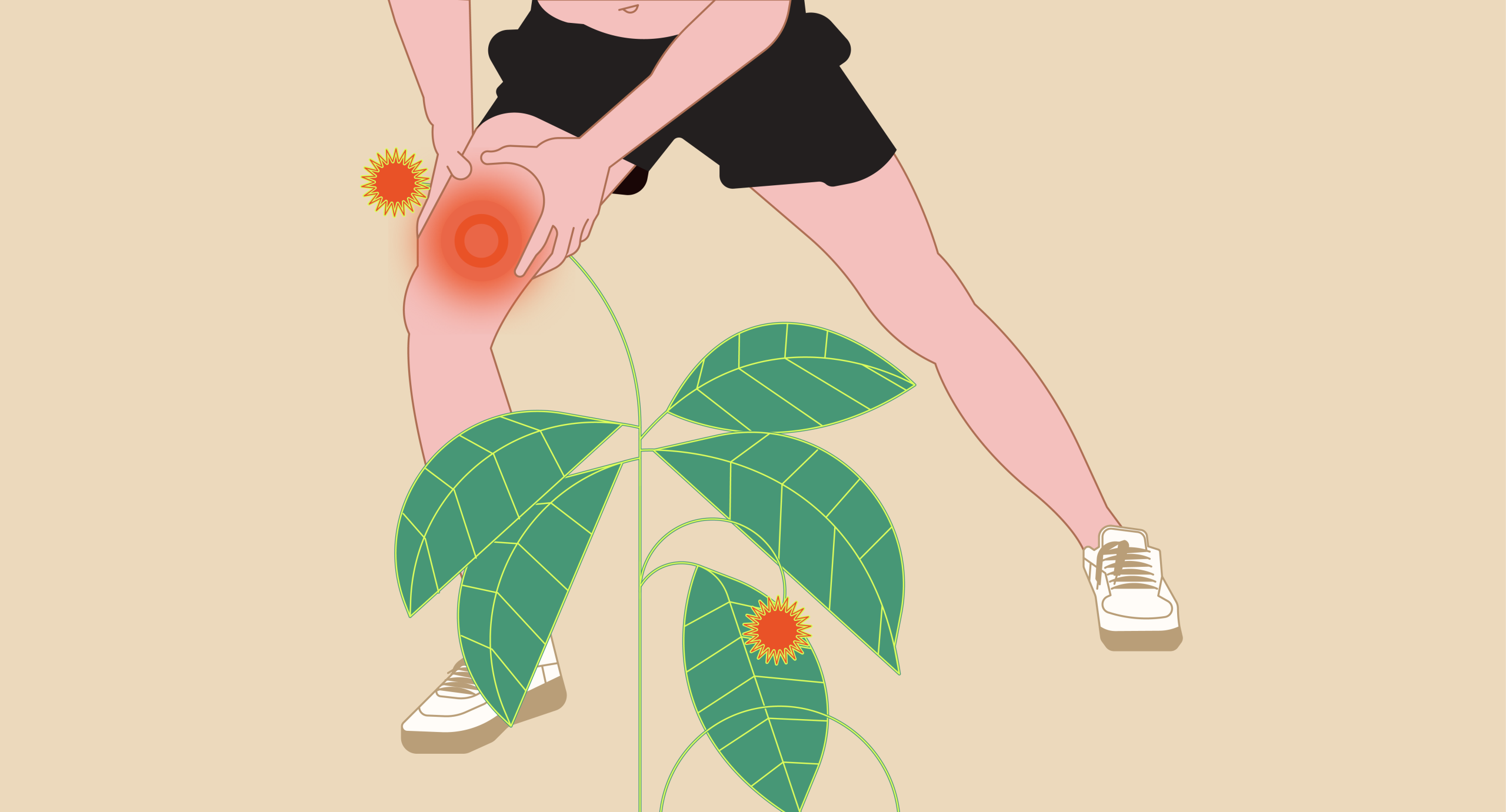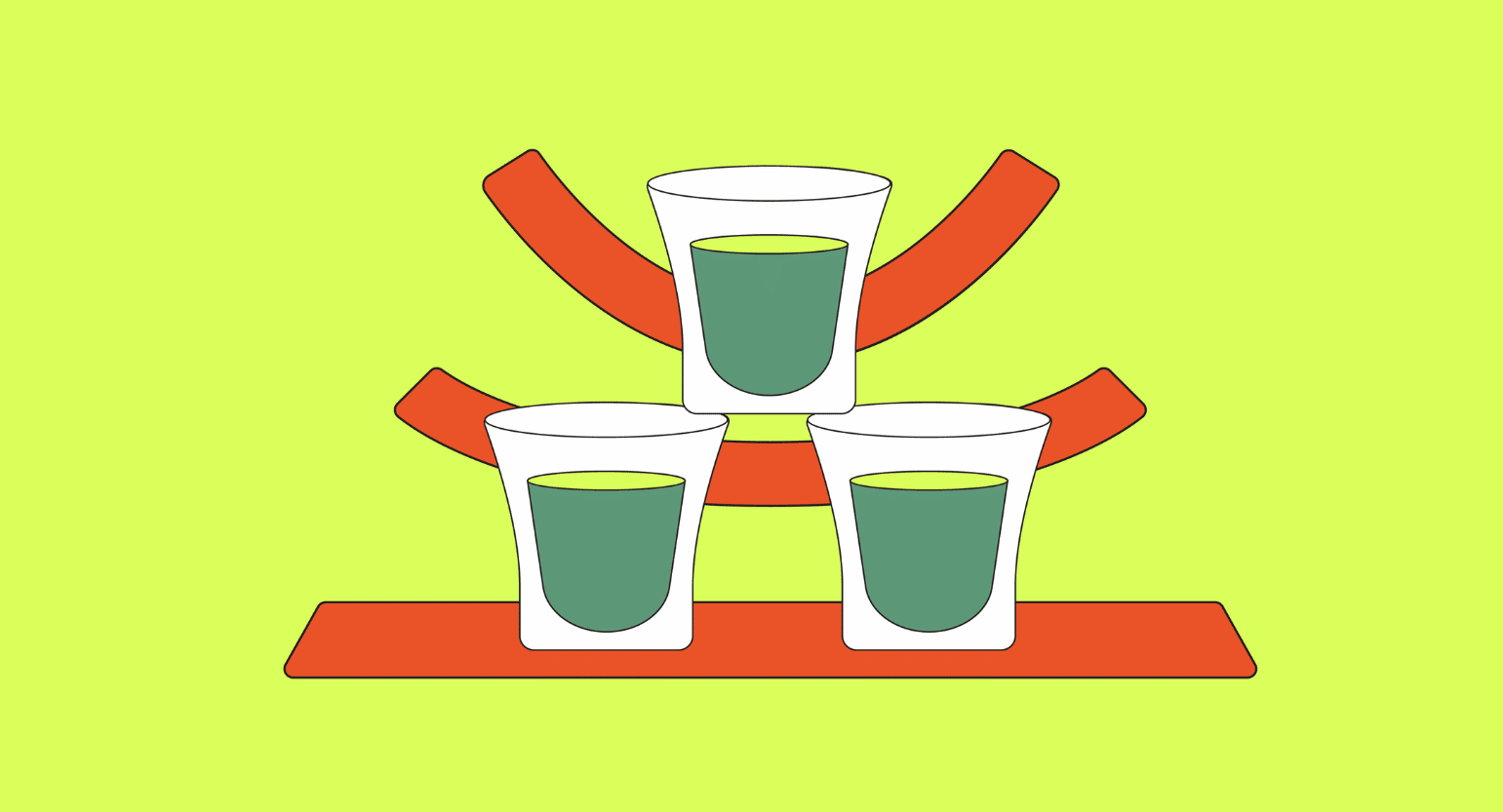Pre-workout supplements are popular in the fitness community, as people claim they give you energy for a better training session. These supplements typically come as a powder that you can mix with water and contain ingredients like caffeine, creatine, and amino acids.
However, people look for alternatives for many reasons: pre-workouts are expensive, often contain artificial ingredients and sugars, and can cause side effects like increased heart rate or nausea.
This article will cover ten natural alternatives to typical pre-workout supplements that won’t break the bank — some might surprise you.
1. Coffee
No one is surprised coffee increases energy, but many people don’t consider it a pre-workout supplement.
Black coffee is a source of antioxidants and nutrients, along with the caffeine it’s widely used for.
Beyond increased energy, caffeine has many benefits when taken before a workout. It improves muscular and aerobic endurance, strength, focus, cognitive function, and vigilance [1].
A single cup of coffee can contain up to 100 mg of caffeine and can take about an hour to absorb into your bloodstream, so take that into account if you want it to kick in before you work out.
It is a reliable and cost-effective alternative to supplements, but caffeine-sensitive individuals should stay away from it.
Suggested Reading: Coffee Alternatives — New Sources of Energy & Focus
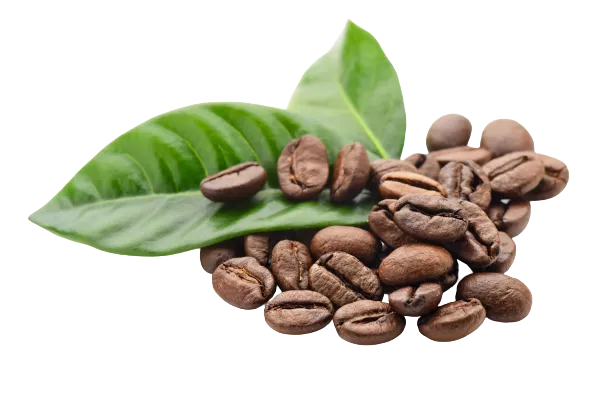
2. Green Tea
Although green tea contains less caffeine than coffee, it has some added benefits. One of them is the calming effect it provides, which helps to balance out caffeine, improving your focus.
Research also suggests that drinking green tea before exercising can help people burn fat faster, improve recovery, and reduce muscle soreness [2].
Matcha offers the highest caffeine content of any green tea, making it a perfect choice. It also has vitamins B, C, and E, antioxidants, amino acids, and other benefits that can aid you during a workout.
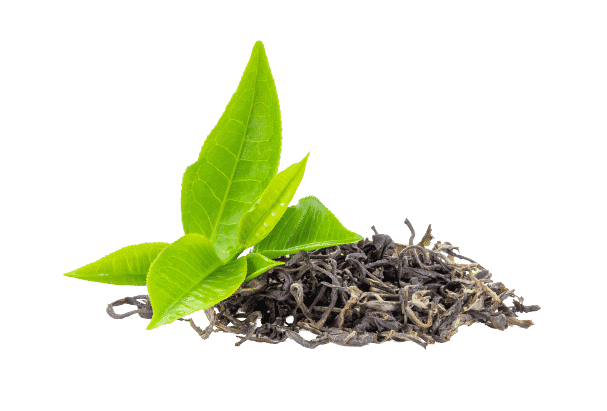
3. Fruit
Fruits are a source of simple sugars and carbs, making them easy to digest and fuel your body faster. They also have vitamins and nutrients that give you extra benefits.
These are some of the best fruits to eat before a workout session:
Bananas
Bananas are an inexpensive but energy-dense fruit with the right amount of carbohydrates to keep you energized. Plus, they’re high in vitamins and minerals, including a high potassium content that helps prevent cramping.
A study in 2012 showed that cyclists who ate a banana every fifteen minutes during a three-hour race maintained a balanced energy level. Other studies show that two bananas provide enough energy for a 90-minute workout [3].

Dates
It might sound weird, but dates are a common ingredient in nutritional bars for reasons that stretch far beyond their ability to act as a natural sweetener.
Dates are a dense source of nutrition and energy, packed full of carbohydrates, fiber, proteins, fats, minerals, vitamins, enzymes, phenolic acid, and carotenoids. They’re also known to help treat many diseases [4]. Because of these traits, dates can help athletes have the energy and health to train longer.
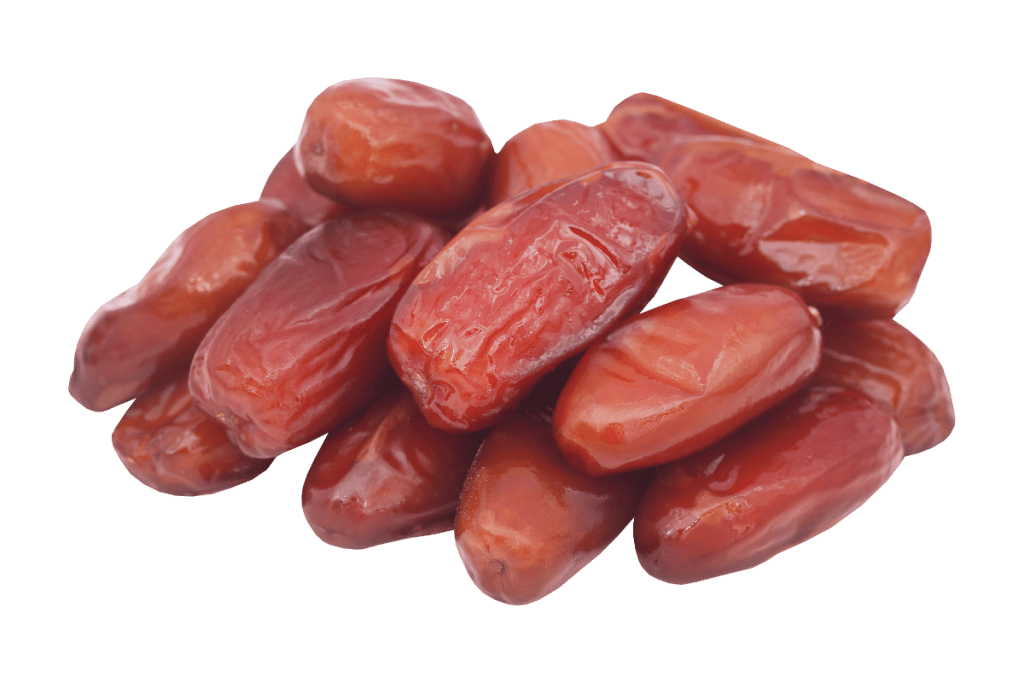
Goji Berries
Berries are all high in vitamin C and antioxidants and can help control blood sugar and keep your immune system healthy.
Goji berries go a step beyond that — studies show that drinking 120 ml (equivalent to 150 g of fresh fruit) for 14–30 days can enhance cardiovascular system efficacy, improve joint and muscle function, keep the gastrointestinal tract regular, and improve neurological and psychological traits [5].
Blend these all together or separately into a smoothie, or combine them with yogurt for extra protein and probiotics.
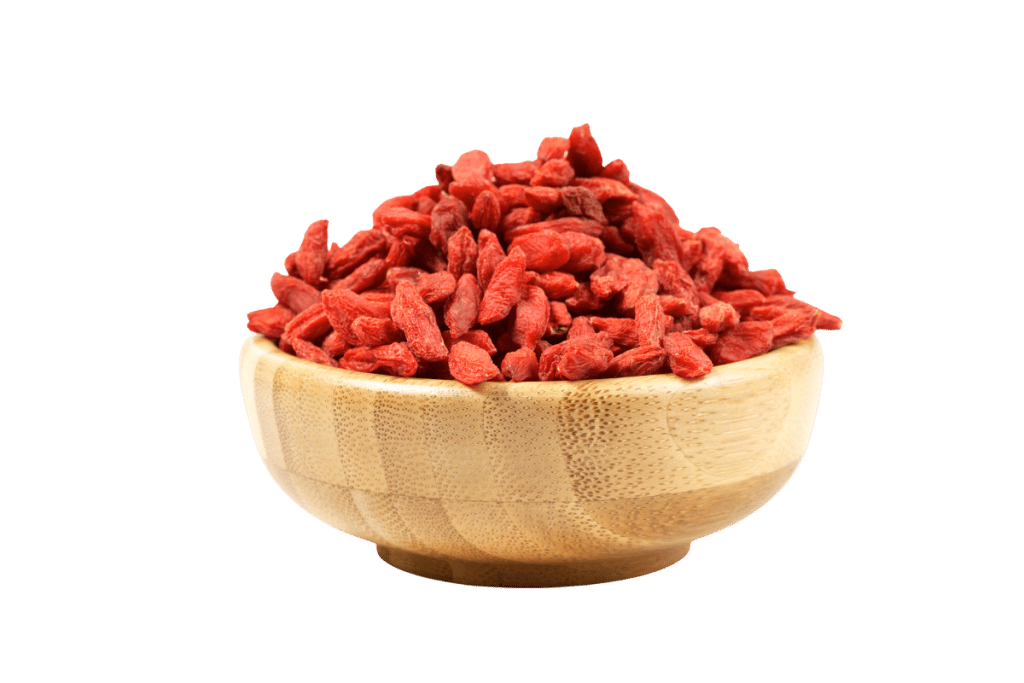
4. Ginseng
Ginseng is a root similar to turmeric and ginger. It contains chemicals known as ginsenosides, which are responsible for its medicinal properties. Still, you can use it for more than just a flu remedy.
Ginseng can increase your energy, help you endure longer training sessions, and improve your body’s ability to deal with physical and emotional stressors [6].
Moreover, ginseng increases fat oxidation during the first 20 minutes of exercise, meaning you’ll burn fat instead of carbs.

5. Oats
Oats are different than other grains — they’re a high source of fiber and lipids, contain unique antioxidants called avenanthramides, and have tocotrienols and tocopherols (vitamin E-like compounds).
It’s well-documented that oats reduce cholesterol, but some research suggests that the grain can also help protect the heart, prevent weight gain, lower blood pressure, and improve insulin response [7].
Oats are also complex carbs, which have a slower rate of digestion; oats gradually release the carbs into your bloodstream, providing you with the fuel you need for lengthier periods.
A bowl of oatmeal will leave you satisfied for hours. For added benefits, you can prepare it with fruits, dried nuts, protein powder, and other natural supplements.
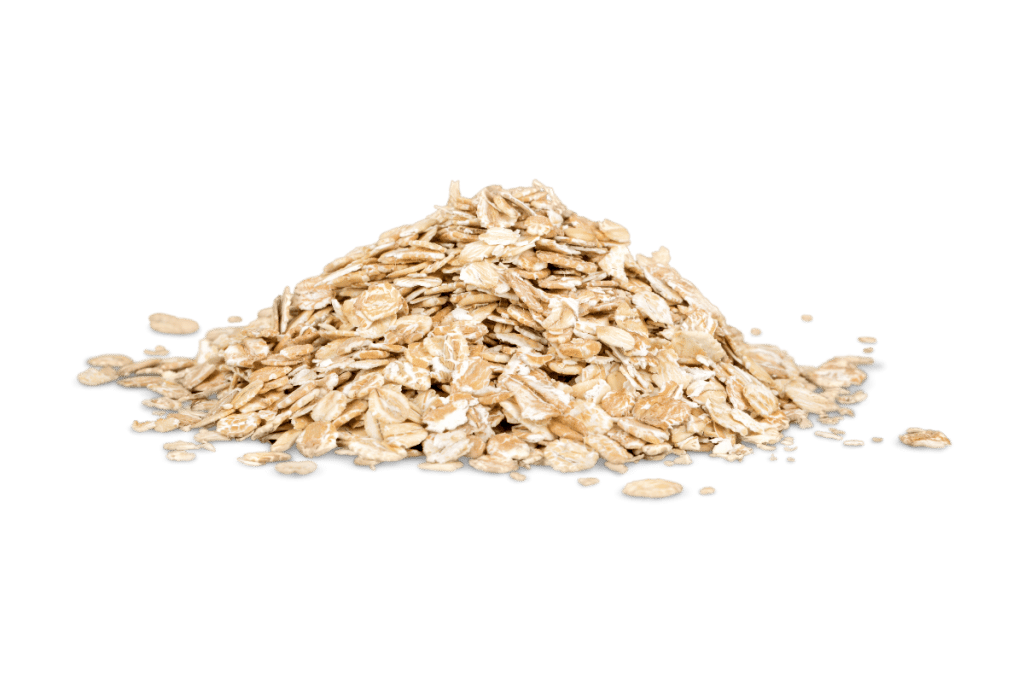
6. Maca Root
Maca is a Peruvian vegetable full of vitamins, minerals, and fiber. Although most people know it for its aphrodisiac properties, maca root has other benefits that can help you during workouts.
This supplement can help you increase your energy levels and improve your endurance during exercise. Its flavonoids may also reduce stress and anxiety, putting you in the right headspace for the gym [8].
To get the most out of your maca root powder, avoid adding it to hot beverages or baking with it, as it will lose nutritional value. Instead, try adding it to already-cooked food or smoothies.
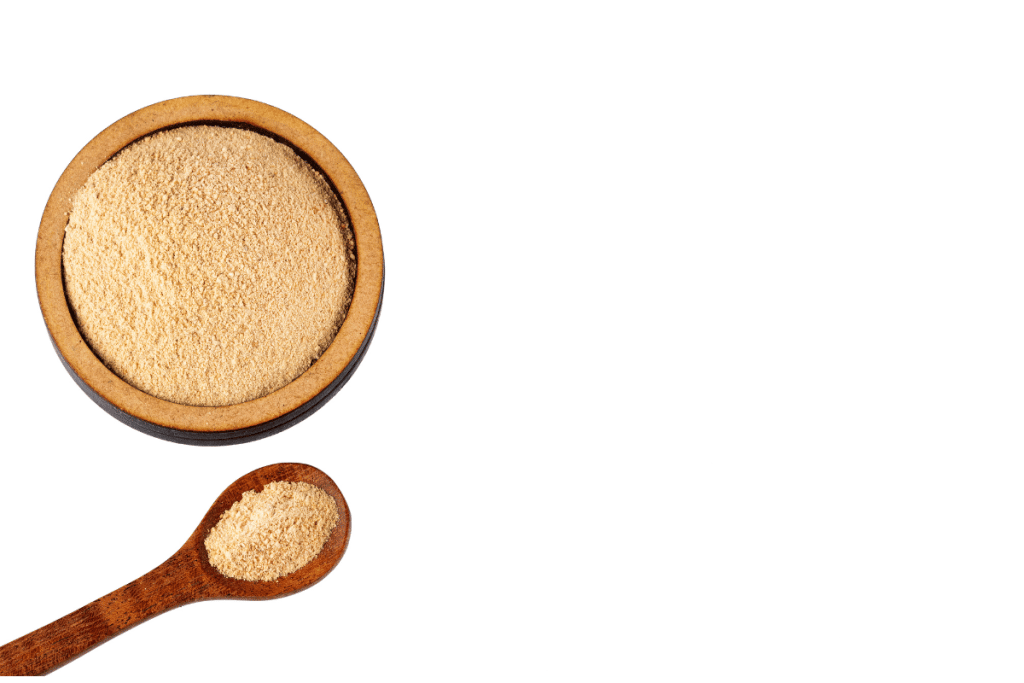
7. Turmeric
Turmeric has many well-known medicinal benefits, and a recent study shows this spice could also be the perfect complement to your training sessions.
According to the research, turmeric’s anti-inflammatory properties can help improve your performance by reducing pain and soreness [9]. Less inflammation also means a faster recovery for your muscles.
The best way to consume turmeric is with black pepper, which considerably improves bioavailability.
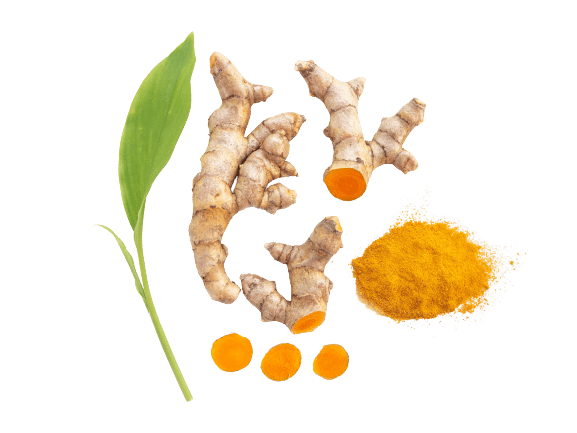
8. Kratom
Kratom is closely related to coffee, provides various effects —from sedative to stimulative —and reduces anxiety and pain [10].
The different variations of this plant are known as strains — the best suited as a workout aid are the green and white-veined ones. These strains contain alkaloids that enhance focus and energy.
Additionally, kratom possesses anti-inflammatory and analgesic properties, which can help restore your body and help with muscular pain.
If you are unfamiliar with kratom, you may wonder how to take it for the best results. If you want to try kratom for a pre-workout, use the powder to make tea or consume it as a capsule 15 to 30 minutes before hitting the gym.
Keep in mind that the effects vary depending on how much you take, so check out dosage guidelines before jumping into it.
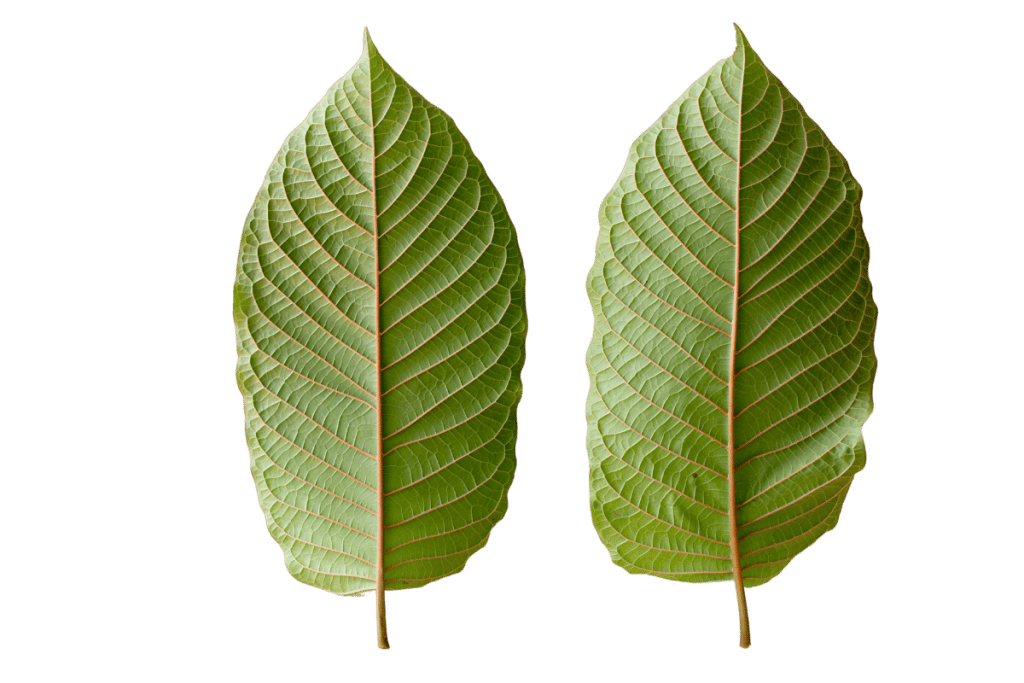
9. Chia Seeds
Chia seeds — yes, the same ones used in Chia Pets — are tiny but contain a considerable amount of benefits. They’re one of the oldest crops cultivated by the Aztecs, who used them for endurance and energy. Rumor has it the word chia means “strength” in Mayan.
Chia contains healthy fatty acids, dietary fiber, proteins, vitamins, minerals, polyphenols, and antioxidants. Research shows they can improve the blood lipid profile and have hypotensive, hypoglycaemic, antimicrobial, and immunostimulatory effects [11].
Add a tablespoon to your food, or make a traditional drink called chia fresca — a simple concoction using 8 ounces of water, lime or lemon juice to taste, honey (optional), and a tablespoon of chia seeds — let it sit for five minutes then enjoy the benefits.
The seeds gel up, so don’t be surprised by their odd texture.
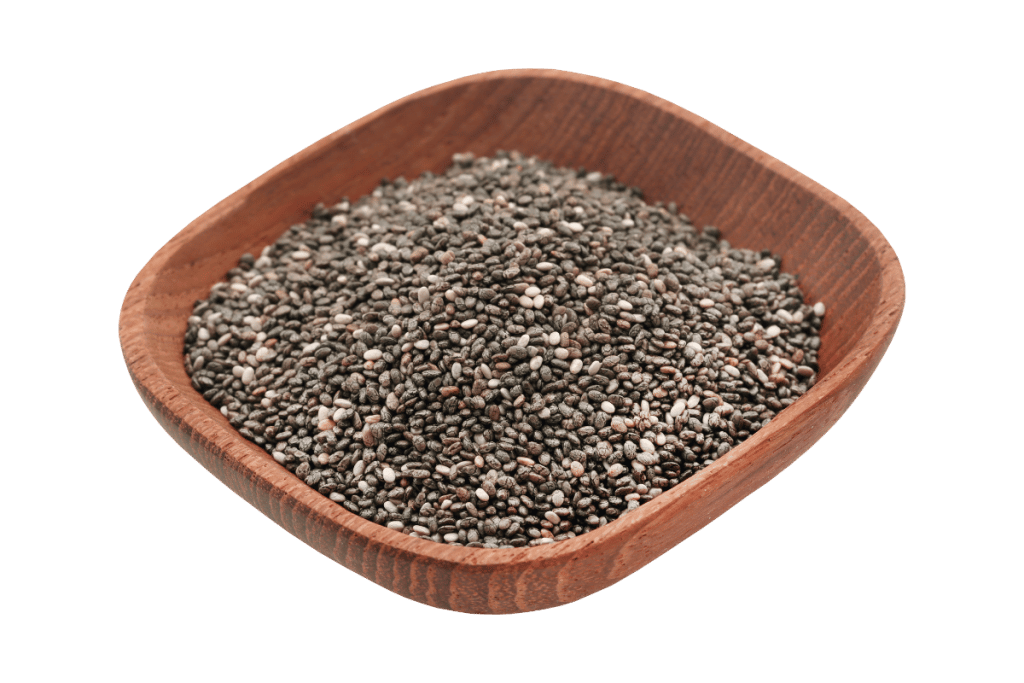
10. Beet Juice or Powder
The taste is earthy and hard to stomach for some people, but everyone — whether you’re into working out or not — should consider adding beets to their diet.
These red roots are full of minerals, vitamins, and trace elements that fight fatigue, reduce appetite, revitalize red blood cells, and increase iron levels in the blood.
The nitrates in beets are precursors to nitric oxide, which can improve cardiovascular health, lower blood pressure, promote blood flow, and increase blood oxygen and nutrient levels. These nitrates also reduce oxygen consumption and prevent lactic acid build-up — these two things alone greatly benefit athletes. But it doesn’t stop there; beets can also increase muscle efficacy and cardiorespiratory endurance [12].
A high-quality beet powder can be an excellent way to integrate them into your diet if eating cooked beets isn’t an attractive option.
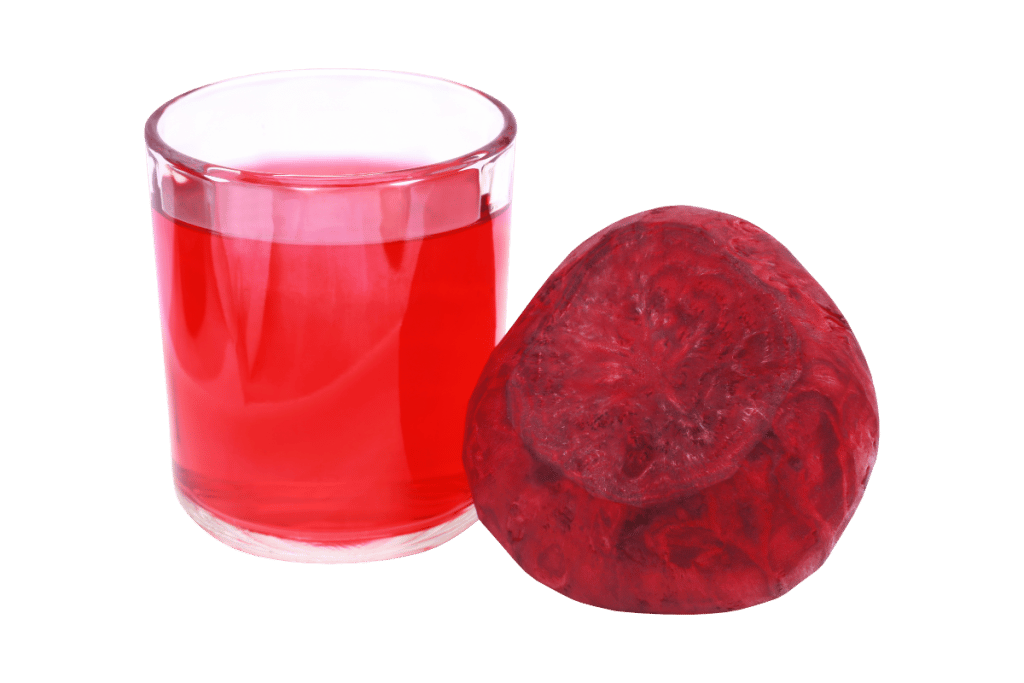
Are Pre-Workouts Dangerous?
Pre-workouts aren’t inherently dangerous, but they can be if misused. There are possible links to these products causing adverse effects in some people, including ischemic stroke, hemorrhagic stroke, myocardial infarction, hepatitis, and death, though the list goes on [13]. Energy drinks are arguably the most dangerous, but it’s best not to make a habit out of drinking them and to find alternative sources instead [14].
Most people have no problem with them, but it’s essential to be aware of the dangers — especially if you have underlying health problems or are on medication. Make sure to check the ingredient lists and have a good understanding of what each substance does. If you’re involved in sports, ensure the pre-workout doesn’t contain a banned substance [15].

Conclusion: Preworkout Alternatives
Each person is different, and finding the best complement for your training sessions will require trying new things. Artificial supplements may work faster but could harm you in the long run.
For a successful workout, you need carbs, protein, and micronutrients. Natural alternatives can provide you with all these things, and there are many easy and inexpensive options available.
- Guest, N. S., VanDusseldorp, T. A., Nelson, M. T., Grgic, J., Schoenfeld, B. J., Jenkins, N. D., … & Campbell, B. I. (2021). International society of sports nutrition position stand: caffeine and exercise performance. Journal of the International Society of Sports Nutrition, 18(1), 1.
- Venables, M. C., Hulston, C. J., Cox, H. R., & Jeukendrup, A. E. (2008). Green tea extract ingestion, fat oxidation, and glucose tolerance in healthy humans. The American journal of clinical nutrition, 87(3), 778-784.
- Ranjha, M. M. A. N., Irfan, S., Nadeem, M., & Mahmood, S. (2022). A comprehensive review on nutritional value, medicinal uses, and processing of banana. Food Reviews International, 38(2), 199-225.
- Ibrahim, S. A., Ayad, A. A., Williams, L. L., Ayivi, R. D., Gyawali, R., Krastanov, A., & Aljaloud, S. O. (2021). Date fruit: A review of the chemical and nutritional compounds, functional effects and food application in nutrition bars for athletes. International Journal of Food Science & Technology, 56(4), 1503-1513.
- Shah, T., Bule, M., & Niaz, K. (2019). Goji Berry (Lycium barbarum)—A superfood. In Nonvitamin and Nonmineral Nutritional Supplements (pp. 257-264). Academic Press.
- MICHAEL, T. L., Podolka, T. D., & Chuang, W. J. (2005). PANAX NOTOGINSENG SUPPLEMENTATION ENHANCES PHYSICAL, PERFORMAN ENDURANCE EXERCISE. Journal of Strength and Conditioning Research, 19(1), 108-114.
- Katz, D. L. (2001). A scientific review of the health benefits of oats. The Quaker Oats Company. Obtenido el, 15(4), 07.
- Wang, Y., Wang, Y., McNeil, B., & Harvey, L. M. (2007). Maca: An Andean crop with multi-pharmacological functions. Food Research International, 40(7), 783-792.
- Suhett, L. G., de Miranda Monteiro Santos, R., Silveira, B. K. S., Leal, A. C. G., de Brito, A. D. M., de Novaes, J. F., & Lucia, C. M. D. (2021). Effects of curcumin supplementation on sport and physical exercise: a systematic review. Critical Reviews in Food Science and Nutrition, 61(6), 946-958.
- Prozialeck, W. C., Jivan, J. K., & Andurkar, S. V. (2012). Pharmacology of kratom: an emerging botanical agent with stimulant, analgesic and opioid-like effects. Journal of Osteopathic Medicine, 112(12), 792-799.
- Knez Hrnčič, M., Ivanovski, M., Cör, D., & Knez, Ž. (2019). Chia Seeds (Salvia hispanica L.): an overview—phytochemical profile, isolation methods, and application. Molecules, 25(1), 11.
- Ferrara, L. Food Benefits and Nutraceutical Properties of the Red Beet.
- Harris, B. F., Winn, C., & Ableman, T. B. (2017). Hemorrhagic stroke in a young healthy male following use of pre-workout supplement animal rage XL. Military Medicine, 182(9-10), e2030-e2033.
- Bhasin, T. (2019). Multi-Ingredient Pre-Workout Supplements and Energy Drinks. J. Nutr. Metab. Health Sci, 2, 23-29.
- Harty, P. S., Zabriskie, H. A., Erickson, J. L., Molling, P. E., Kerksick, C. M., & Jagim, A. R. (2018). Multi-ingredient pre-workout supplements, safety implications, and performance outcomes: a brief review. Journal of the International Society of Sports Nutrition, 15(1), 41.

